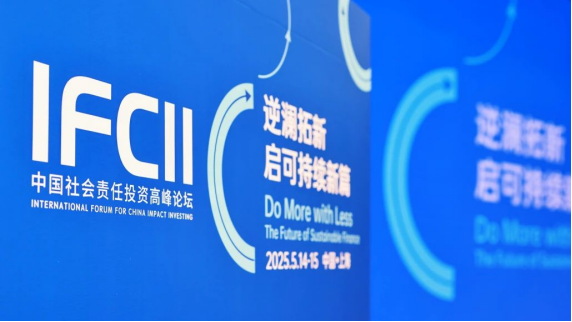
The International Forum for China Impact Investing (IFCII) 2025 convened in Shanghai under the theme "Do More with Less: The Future of Sustainable Finance." The forum brought together leading voices from across China's financial ecosystem to address the evolving landscape of sustainable finance and impact investing.
Co-hosted by the Chinese Academy of Financial Inclusion (CAFI), the Shanghai Advanced Institute of Finance (SAIF) at Shanghai Jiao Tong University, and the Yicai Research Institute, the event examined critical developments in capital markets, implementation of China's Five Major Financial Tasks, corporate social value creation, and rural sustainable development initiatives.
Building a Sustainable Financial Framework
Guangshao Tu, Founding Chair of the SAIF Board, delivered the keynote address outlining four fundamental pillars for China's sustainable financial transformation. He emphasized the evolution from traditional financial systems toward frameworks that actively support high-quality economic growth, encompassing comprehensive reform of financial objectives, services, functions, governance structures, and underlying theoretical foundations.

Tu highlighted the strategic importance of leveraging the Five Major Financial Tasks to address critical development priorities while establishing China's leadership position in sustainable finance. He positioned the Shanghai International Financial Center as a catalyst for innovation and global leadership in this transformation, emphasizing its role in driving both domestic progress and international collaboration.
Regional Leadership and Implementation
Shanghai's commitment to sustainable finance has yielded substantial results, as presented by Changsheng Tao, Deputy Director of the Financial Affairs Office of the CPC Shanghai Municipal Committee. By the end of 2024, the city's inclusive loans to small and micro enterprises reached RMB 1.29 trillion, representing 14% annual growth, while green finance initiatives demonstrated even stronger momentum with loan balances increasing by 20.7%.
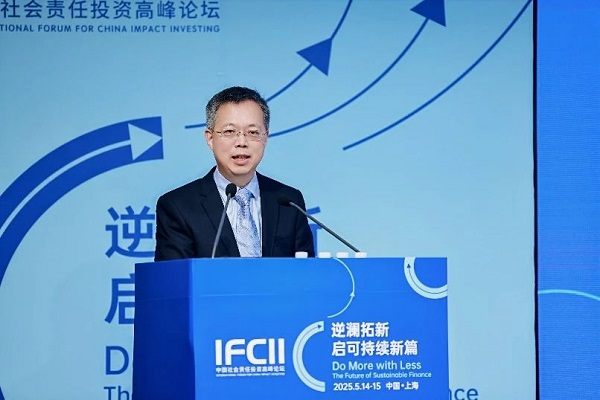
The city's pioneering ESG efforts have established new benchmarks through comprehensive sustainability reporting guidelines, the introduction of the Shanghai Transition Finance Catalog, and development of an integrated green finance service platform. These initiatives demonstrate Shanghai's role as both a testing ground for innovative financial instruments and a model for nationwide implementation.
Technology and Strategic Balance in Sustainable Banking
Industry leaders emphasized the transformative potential of technology in sustainable finance. Xinyi Han, CEO and Executive Director of Ant Group, highlighted how technological innovation is revolutionizing sustainable financing through enhanced risk diversification and the development of direct financing models that better serve underbanked populations and sustainable enterprises.
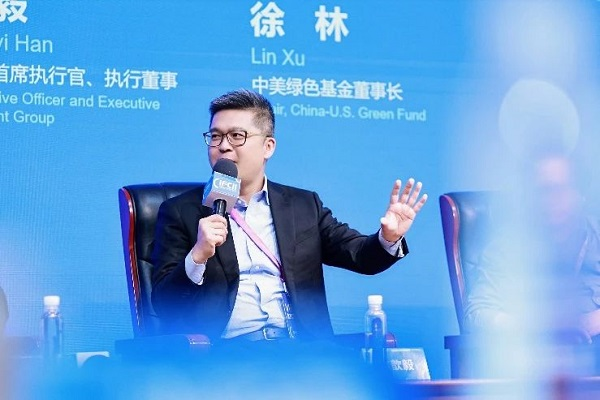
Jian Zhang, Vice President and Board Secretary of Shanghai Pudong Development Bank, outlined the strategic balance required for sustainable banking success. This approach harmonizes external regulatory compliance with internal growth drivers, balances economic returns with social value creation, and aligns corporate advancement with broader stakeholder engagement objectives.
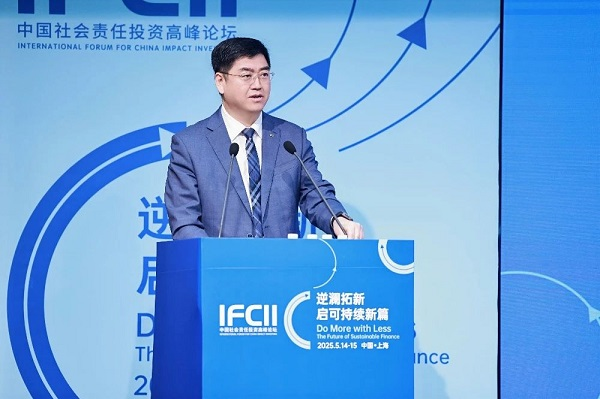
Capital Market Evolution and Achievements
The China Securities Regulatory Commission's Implementation Opinions, released in February 2025, established four strategic priorities that are reshaping capital market participation in sustainable finance: comprehensive technology sector financial services, robust green transition frameworks, optimized inclusive finance mechanisms, and diversified pension solutions.
These priorities have already generated significant market activity. Wei Liu, Deputy Director of the Shanghai Stock Exchange Research Institute, reported impressive achievements for the January-April 2025 period, with total financing of RMB 119.4 billion through bonds and asset-backed securities. This included RMB 5.9 billion in SME-specific bonds, RMB 11.6 billion in rural revitalization bonds, RMB 37.9 billion in supply chain ABS, and RMB 57.5 billion in microfinance ABS. Bond ETF assets reached RMB 214.9 billion, marking a 43% increase from year-end 2024.

Knowledge Development and Industry Resources
The forum served as a platform for launching several significant industry resources. CAFI Dean Duoguang Bei presented "Understanding Rural Revitalization and Rural Finance," addressing one of China's most pressing sustainable development challenges. SPD Bank introduced its "Pu Xiang Hui" client service platform, designed to enhance financial inclusion through improved client engagement and service delivery.
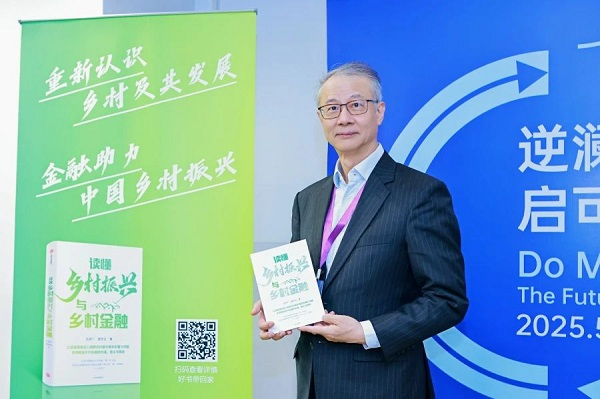
The Yicai Research Institute contributed two comprehensive reports: "Symbiosis: Observations on Stewardship in China" and "Chinese Corporate Social Responsibility Research Report." These publications provide critical insights into the evolving relationship between corporate governance, stakeholder engagement, and sustainable value creation in the Chinese market context.
Future Outlook
As emphasized by Yudong Yang, Editor-in-Chief of Yicai Financial, these initiatives collectively represent a fundamental shift in China's approach to investment and business practice. The forum's discussions and outcomes reinforce the growing recognition that sustainable finance is not merely an ethical imperative but a strategic necessity for long-term economic resilience and growth.

The convergence of regulatory support, technological innovation, market mechanisms, and stakeholder commitment demonstrated at IFCII 2025 suggests that China's sustainable finance ecosystem is positioned for continued expansion and sophistication. The forum's emphasis on "doing more with less" reflects both the efficiency gains possible through sustainable practices and the urgent need to maximize impact in addressing environmental, social, and governance challenges.

